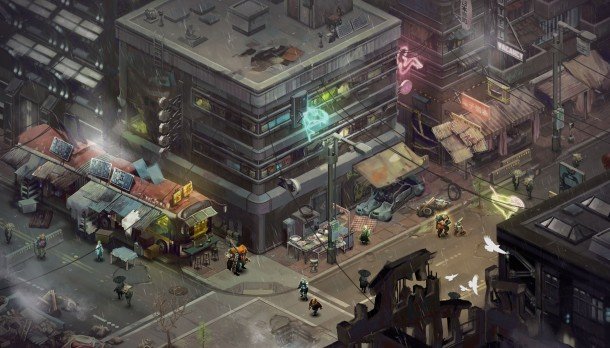Shadowrun Returns' Jordan Weisman on the "double-edged sword" of crowdfunding

Harebrained Schemes' Shadowrun Returns saw a successful Kickstarter campaign last April, and since then the developer has been busy crafting the cyberpunk tactical RPG it promised to backers. Dealing with the "crowd" in crowdfunding, though, means directly exposing yourself to an audience that's already given you their money and facing the challenge of earning attention in a sea of nostalgia-powered proposals. Shadowrun (and MechWarrior) creator Jordan Weisman examines these issues directly in a new GamesIndustry interview
"It's been an exhilarating process working with the audience," he says. "It's a total glass house—very different than the usual development. It's like a high-wire act with no net; it keeps us very focused and scared to death."
Weisman believes the "democratization of distribution" that's emerged through self-publishing platforms like Steam Greenlight, Indiegogo, and the Apple App Store can make it hard for a single project or idea to stand out among their ocean of competitors. "It's not an easy thing for the consumers to find you in what is an incredibly noisy marketplace," he states. "The democratization means there's 500,000 apps out there, and x thousands of games, and thousands of games come out every year. The consumer is overwhelmed with choice."
The viability of pitching games through Kickstarter has certainly worked out well for projects that've made appeals to gamers' nostalgia, as the funds poured into reboots and remakes like Planetary Annihilation, Wasteland 2 , and Torment: Tides of Numenera can attest. The darker side of this gold rush is that crowdfunding carries the risk of an extremely public failure, and making all the preparatory work needed to announce a project a wasted effort. It's risky, and everything can fall apart in less time than it takes to say " Wildman ."
Weisman explains his own thoughts on the particulars of Kickstarter's users, saying, "It tends to be an older audience, one you can afford to take a little risk and who have an emotional attachment. This is something they passionately care about, and they are risking their money a year or more ahead of time with you to make the game they hope you're going to make.
"When you're working for a publisher, there's a very small number of people whose expectations you have to meet in order to get to the consumers and hopefully meet their expectations," he adds. "In this case, we have 37,000 people who likely have different expectations, and I think the only thing we can say universally is they have very high expectations. That is both really gratifying and enormously scary."
Get the rest of Weisman's interview over at GamesIndustry .
Keep up to date with the most important stories and the best deals, as picked by the PC Gamer team.
Omri Petitte is a former PC Gamer associate editor and long-time freelance writer covering news and reviews. If you spot his name, it probably means you're reading about some kind of first-person shooter. Why yes, he would like to talk to you about Battlefield. Do you have a few days?


